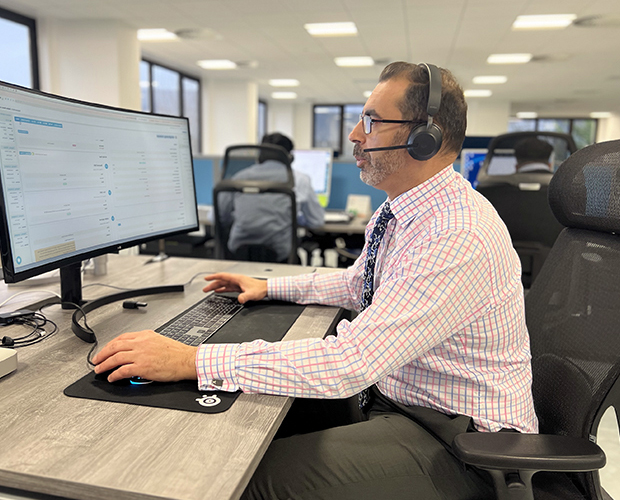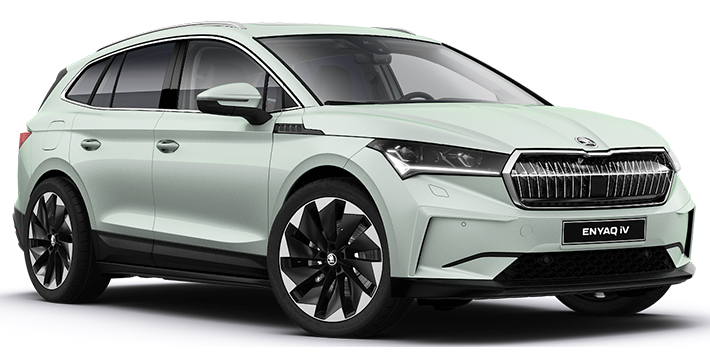- Back
- PCP car finance
- HP car finance
- No deposit car finance
- Young drivers car finance
- Negative equity car finance
- Car finance with a guarantor
- Self employed car finance
- Provisional license car finance
- Instant decision car finance
- Low APR car finance
- Black box car finance
- Car finance eligibility
- Electric car finance
- Hybrid car finance
- Student car finance
- Fair credit car finance
- Key worker car finance
- Car refinancing
- FAQ
- Magazine
- News
- Glossary
- Our lenders
- Compare our lenders
- Back
- Used Alpha Romeo
- Used Audi
- Used BMW
- Used Citroen
- Used Fiat
- Used Ford
- Used Honda
- Used Hyundai
- Used Jaguar
- Used Jeep
- Used Kia
- Used Land Rover
- Used Lexus
- Used Mazda
- Used Mercedes-Benz
- Used Mini
- Used Mitsubishi
- Used Nissan
- Used Peugeot
- Used Porsche
- Used Renault
- Used Seat
- Used Skoda
- Used Suzuki
- Used Tesla
- Used Toyota
- Used Vauxhall
- Used Volkswagen
- Used Volvo
What is PCP Finance?
A Personal Contract Purchase (PCP) agreement is a flexible car finance option that allows you to drive a new or used vehicle without paying the full price upfront. Instead, you make low monthly payments over an agreed period as part of a structured PCP finance agreement, with multiple options at the end of the contract. This financing method is ideal for those looking for affordable monthly instalments and the ability to switch cars every 2-3 years.
PCP car finance calculator
These estimates are subject to credit checks and may change when you apply for finance. this is for example purposes only
Hire Purchase (HP)
APR 11.9%60 monthly payments of
£0
- Interest rate
- 11.9% APR
- Amount of interest
- £0
- Total payment
- £0
Personal Contract Purchase (PCP)
APR 11.9%60 monthly payments of
£0
- Optional final payment
- £0
- Interest rate
- 11.9% APR
- Amount of interest
- £0
- Total payment
- £0
Rates from 9.9% APR: the exact rate you will be offered will be based on your circumstances, subject to status. Representative example: borrowing £7,000 over 5 years with a representative APR of 21.9%, the annual interest rate of 21.9% (Fixed) and a deposit of £0, the amount payable would be £185.33 per month, with a total cost of credit of£4,119.81 and a total amount payable of £11,119.81. We look to find the best rate from our panel of lenders and will offer you the best deal that you're eligible for. We receive a fixed fee commission per finance agreement, or we receive a commission based on a percentage of the total amount of finance taken. This will not affect the interest rate offered or the total amount repayable. Our service is free.
Our customers who have already got car finance!
- High Acceptance Rate
- Representative APR 21.9%
- Rated excellent on Trustpilot
How car finance works
Find a deal
Submit your details and choose from a fantastic range of car finance deals.
Final arrangements
If successful we’ll organise everything with the lender.
Enjoy your new car
All that’s left to do is to enjoy your new car for the duration of your contract.

How Does PCP Work?
PCP finance is designed to make vehicle ownership more accessible. The process is straightforward:
- Choose Your Vehicle – Select a new or used car that fits your budget.
- Decide Your Deposit & Mileage – Pay an initial cash deposit (if required) and estimate your annual mileage.
- Fixed Monthly Payments – Make regular monthly repayments covering part of the vehicle’s cost.
- Guaranteed Future Value (GFV) – At the end of the term, you have three options:
- Return the Car – Hand the car back to the lender with nothing more to pay (subject to mileage & condition).
- Trade It In – Use any equity in the vehicle as a deposit for a new PCP deal.
- Buy It Outright – Pay the Optional Final Payment (balloon payment) and own the car outright.
This flexible ownership model makes PCP car finance a preferred choice for many UK drivers.
PCP vs. Other Finance Options
PCP vs Hire Purchase (HP)
- PCP offers lower monthly payments because you only pay for the car’s depreciation.
- HP has higher monthly payments, but once you complete them, you own the car.
- PCP gives you flexible end-of-term options, while HP is ideal for those who want to own their vehicle outright.
PCP vs Car Leasing
- Leasing means you never own the car, whereas PCP provides the option to buy it at the end.
- Leases often include maintenance costs, while PCP does not.
- PCP is better for those who may want to keep the car after the agreement.
PCP vs Bank Loan
- Bank loans give you immediate ownership, with no mileage restrictions.
- PCP deals often come with deposit contributions, such as manufacturer incentives.
- Personal loans may have lower interest rates but require strong credit approval.
PCP Car Finance Example
Let’s say you finance a £20,000 car with PCP:
- Deposit: £2,000
- Loan Amount: £18,000
- Term: 36 months
- Monthly Payment: £250
- Balloon Payment (GFV): £8,000
At the end of the agreement, you can return the car, upgrade to a new PCP deal, or pay the balloon payment to keep it.
PCP Finance Eligibility
Most UK drivers can apply for PCP finance, but eligibility depends on:
- Credit Rating – A good score offers better interest rates, but bad credit PCP deals are available.
- Deposit Contribution – Some deals require a deposit, but zero deposit PCP finance options exist.
- Employment & Income – Proof of stable income improves approval chances.
PCP Car Deals: What to Consider
Before signing a PCP agreement, evaluate the following:
- Annual Mileage Limit – Exceeding the limit incurs extra charges.
- Interest Rate (APR) – A lower rate reduces your total cost.
- Final Payment (Balloon Payment) – Ensure you can afford the residual value if you choose to keep the car.
- Deposit Contributions – Some manufacturers offer incentives that reduce your overall cost.
- Finance Calculator – Use an online PCP finance calculator to estimate monthly payments and total costs.
Pros & Cons of PCP Finance
Pros
 Monthly payments are lower than a loan or installment plan.
Monthly payments are lower than a loan or installment plan.
 You don't have to worry about the future value of the car when you sell or resell it.
You don't have to worry about the future value of the car when you sell or resell it.
 Several flexible options for what to do with the car are available, including the option to buy it back.
Several flexible options for what to do with the car are available, including the option to buy it back.
 Dealers often add service and maintenance packages, warranties, and insurance.
Dealers often add service and maintenance packages, warranties, and insurance.
 You have the ability to buy a more expensive car than you could otherwise afford, but with monthly payments that fit your budget.
You have the ability to buy a more expensive car than you could otherwise afford, but with monthly payments that fit your budget.
Cons
 You won't own the car.
You won't own the car.
 Interest rates on PCPs are usually higher than on personal loans.
Interest rates on PCPs are usually higher than on personal loans.
 If the projected future value is set very close to the actual value of the car, you will have little money to carry over to another deal.
If the projected future value is set very close to the actual value of the car, you will have little money to carry over to another deal.
 You'll have to pay additional charges if you exceed the agreed-upon mileage.
You'll have to pay additional charges if you exceed the agreed-upon mileage.
 The future value is based on keeping the car in good condition. You may have to pay extra for repairs that are not due to normal wear and tear.
The future value is based on keeping the car in good condition. You may have to pay extra for repairs that are not due to normal wear and tear.
Can You Get PCP with Bad Credit?
Yes, you can still secure PCP car finance with poor credit, but:
- Interest rates will be higher.
- A larger deposit may be required.
- Applying through a broker like Carplus can help you find suitable lenders.
Why Choose Carplus for PCP Finance?
Carplus is a trusted PCP car finance broker in the UK, offering:
- Over 100 finance deals tailored to your budget.
- Flexible deposit options, including no-deposit PCP.
- Fast approvals, even for bad credit applicants.
- A vast selection of new and used PCP cars.
Get Your PCP Finance Quote Today!
Find your perfect PCP car finance deal with Carplus. Compare offers, apply online, and drive away in your dream car! 🚗
Personal contract purchase example
Let's look at an example of how the scheme works if you apply for PCP car finance. So, you have signed a contract for three years for a car that costs £20,000. The finance company predicts that the vehicle will be worth £8,000 by the end of the contract period. Your next steps are as follows:
First, you make a 10% deposit - in our case, that would be £2,000. For the remaining £18,000, you take out a loan.
At the end of the contract, you can either return the car to the dealer or own it outright by paying £8,000 to the dealer.
Whether you return to the UK or not, you must pay interest on the entire loan.
Why our customers rate us 5 stars
Compare deals
Compare and find the best car finance deals - quick and easy. When comparing deals, consider the part-exchange value of your current car to reduce the overall cost.
No impact to your credit
Getting a finance quote with Carplus won't affect your credit score, but a hard search will be completed before completion of the deal
No deposit deals
No deposit options are available on all deals. Check if you are eligible today and get approved risk-free with soft search.
Instant quote decision
Get your UK car finance decision in minutes. Check your eligibility first. Apply in confidence with Carplus

Find your perfect car finance deal
Search now ➜FAQ: Common Questions About PCP Finance
What happens if I end my PCP agreement early?
If you choose to end your PCP agreement early, you may be required to pay a settlement fee or the remaining balance. Some lenders offer voluntary termination if you have paid 50% of the total finance amount.
Do I need to pay a deposit contribution for PCP?
Not always. Some manufacturers and finance companies offer deposit contributions as part of promotional deals, which can reduce your overall costs.
What is considered fair wear and tear in PCP?
Fair wear and tear refers to normal usage-related damage, such as minor scratches and tyre wear. However, excessive damage (e.g., dents, missing parts) may result in additional fees when returning the car.
Can I use a finance calculator to estimate my PCP payments?
Yes, many lenders and brokers provide PCP finance calculators that help you estimate monthly repayments, interest rates, and balloon payments based on your deposit and term length.

